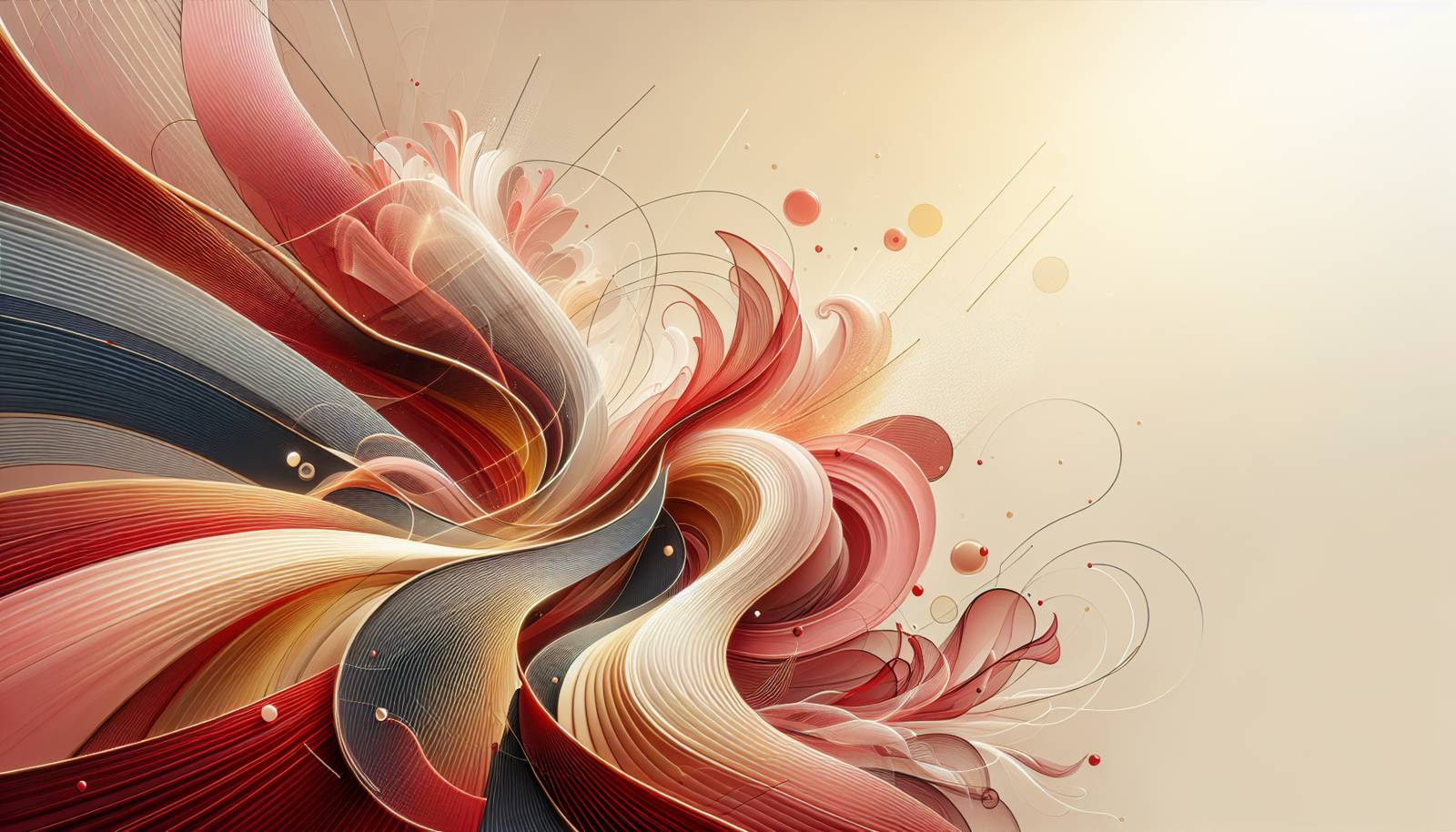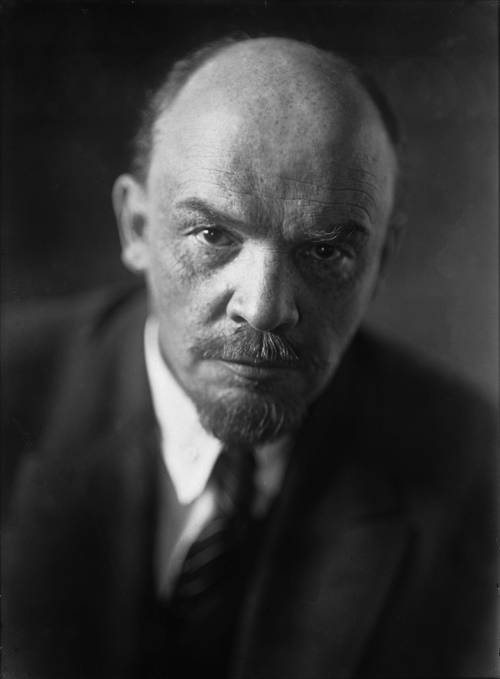
FAQ About Vladimir Lenin

Who was Vladimir Lenin?
Vladimir Lenin, born Vladimir Ilyich Ulyanov, was a Russian revolutionary leader who was instrumental in the founding of the Soviet Union. He led the Bolshevik Party and played a pivotal role in the October Revolution of 1917, which led to the overthrow of the Russian Provisional Government and established Bolshevik rule. Lenin's political theories and practices were foundational to the development of Marxism-Leninism, a form of communist ideology.

What was Vladimir Lenin's role in the Russian Revolution?
During the Russian Revolution, Lenin was the leader of the Bolshevik Party. He engineered the October Revolution in 1917, which was a key event in the larger Russian Revolution. By seizing control over the government, Lenin and his party turned Russia into a socialist state, later establishing the Soviet Union. He was an effective leader, known for his pragmatic approach and emphatic emphasis on class struggle and the dismantling of the capitalist regime.

What is Leninism?
Leninism is a political theory derived from the works of Vladimir Lenin. It represents the ideology of the Bolshevik faction, which Lenin used to justify the overthrow of the Russian Provisional Government. Leninism emphasizes the need for a vanguard party to lead the proletariat towards a successful revolution. It extends the concepts of Karl Marx by advocating for a distinct phase of the proletariat dictatorship before moving on to a classless society. Leninism influenced the development of the socialist states broadly known as 'Marxist-Leninist'.

How did Lenin's ideas differ from Marx's original concepts?
While Lenin was a dedicated adherent of Marxist theory, he adapted Marx's ideas to fit the Russian context. One of the key differences was Lenin's development of the concept of a vanguard party to spearhead the revolution, which was not emphasized by Marx. Marx envisioned a more spontaneous uprising of the working class, whereas Lenin believed in the necessity of a tightly organized, disciplined party to instigate and lead a revolution. Additionally, Lenin adapted Marx's ideas for the primarily agrarian Russian society, despite Marx's theories being largely based on industrialized Western contexts.

What was the New Economic Policy (NEP) introduced by Lenin?
Lenin introduced the New Economic Policy (NEP) in 1921 as a temporary retreat from previous policies of centralized state control over the economy. The NEP reintroduced limited market-oriented reforms, allowing private trade and small businesses to operate under a mixed economy while the state retained control over major industries. This policy was designed to stimulate economic recovery after the harsh conditions of the Russian Civil War and the economic failures of War Communism.

What impact did Lenin's death have on the Soviet Union?
Lenin's death in 1924 led to a power vacuum within the Soviet Union, leading to intense rivalry among his potential successors, notably Joseph Stalin, Leon Trotsky, and others. Stalin ultimately emerged as the dominant figure, shaping the future direction of the Soviet state. Lenin's death also marked the beginning of Stalinism, which differed significantly from Lenin's policies, and the resulting ideological conflicts influenced Soviet policies for decades.

What were some of Lenin's most significant writings?
Among Lenin's most significant writings are "What Is To Be Done?", which outlines his vision of a vanguard party, "The State and Revolution", which explains his views on the role of the state in a socialist society, and "Imperialism, the Highest Stage of Capitalism", where he expands on Marxist theory in the context of global economic developments. These works elaborate on his revolutionary theories and have been influential in communist ideology worldwide.

How did Lenin come to power in Russia?
Lenin rose to power through a series of events during the Russian Revolution of 1917. Initially, he returned from exile in Germany with the help of the German government, who hoped to destabilize Russia. After the February Revolution, Lenin and the Bolsheviks strategically built influence among the soviets (workers' councils) and the military. By October, they seized power in Petrograd (St. Petersburg) through a military coup. The successful Bolshevik Revolution allowed Lenin and his party to establish control over Russia, paving the way for the Soviet Union.

What were the conditions in Russia like before Lenin's rise to power?
Before Lenin's rise to power, Russia was experiencing severe social, economic, and political unrest. The country was underdeveloped, predominantly agrarian, and ruled by an autocratic monarchy, headed by Tsar Nicholas II. The hardships of World War I intensified discontent due to food shortages, military defeats, and general economic collapse. This unrest led to the February Revolution of 1917, which resulted in the abdication of the Tsar and the formation of a provisional government, setting the stage for further revolutionary activities by Lenin and the Bolsheviks.

Why was Lenin exiled, and where did he go?
Lenin was exiled several times due to his revolutionary activities against the Russian Empire. In the early 1900s, he lived in European cities like Munich, London, and Geneva, where he coordinated Bolshevik activities and published revolutionary literature. His most significant period of exile was in Switzerland during World War I. He returned to Russia in April 1917, just in time for the October Revolution.

How did Lenin's leadership influence the global communist movement?
Lenin's leadership solidified the Bolshevik model as a template for communist parties globally, influencing communist movements throughout the 20th century. His theories on imperialism and revolutionary tactics were adopted and adapted by several leaders and parties worldwide. The success of the Bolshevik Revolution inspired many other movements, contributing to the spread of communism in countries like China, Cuba, and Vietnam, among others.

What was Lenin's approach to religion during his rule?
Lenin was a staunch atheist and believed that religion was an opiate used to oppress the working class. During his rule, the state promoted atheism and attempted to diminish the influence of the Russian Orthodox Church. Religious institutions faced confiscation of their properties and suppression of religious teachings. However, the approach was mostly about curtailing the Church's political power rather than suppressing individual religious beliefs completely.

Did Lenin face any opposition within the Bolshevik Party?
Yes, Lenin faced opposition within his own party on several occasions. There were differing views concerning strategy and ideology among the Bolsheviks. Notably, figures like Leon Trotsky and Nikolai Bukharin occasionally disputed Lenin's tactics and policies. Despite intra-party disagreements, Lenin maintained a tight grip on the party, often using debates and discussions to strategize the party's ideological direction. Lenin's firm leadership allowed him to consolidate power and minimize dissent within the Bolshevik ranks during crucial periods.

What role did Lenin play in the Treaty of Brest-Litovsk?
As head of the Soviet government, Lenin played a significant role in negotiating the Treaty of Brest-Litovsk with Germany in 1918. Faced with military defeat and dire internal conditions, Lenin prioritized withdrawing Russia from World War I to stabilize the country. The treaty resulted in significant territorial losses for Russia but provided the Bolsheviks with the opportunity to focus on consolidating power at home during the Russian Civil War that followed.

How did Lenin view the idea of world revolution?
Lenin believed fervently in the concept of world revolution, theorizing that socialist uprisings should be part of a global process to defeat capitalism. He saw the Russian Revolution as the first step in promoting international socialist revolutions. Lenin hoped these movements would undermine imperialist nations and spread socialist ideology across borders. Although the expected widespread uprisings did not immediately materialize, Lenin's ideas inspired future international communist movements.

What impact did Lenin's leadership have on civil liberties in Soviet Russia?
Under Lenin's leadership, the Soviet government curtailed civil liberties significantly to maintain power and facilitate communist governance. The government employed state surveillance, censorship, and the suppression of political opponents to control and monitor dissent. Freedom of speech and press were curtailed, as Lenin believed that these measures were necessary to protect the revolution and ensure the stability of the nascent Soviet state, a trend that intensified under his successor, Stalin.

How did Lenin die, and what were the theories about his illness?
Vladimir Lenin died on January 21, 1924, after a series of strokes beginning in 1922. The precise cause of his illness has been debated, with theories including syphilis, arteriosclerosis, and complications from gunshot wounds he previously sustained. Recent speculations and studies suggest that he may have suffered from a neurovascular disorder; however, the exact cause remains a subject of historical investigation and debate.

What were Lenin's views on nationalism and statehood?
Lenin had a complex relationship with nationalism. He recognized its ability to mobilize masses but viewed it as potentially antithetical to socialist internationalism, which he preferred. Lenin advocated for self-determination of nations within the Russian Empire, supporting the rights of various ethnic groups to decide their political futures. Nonetheless, he prioritized the unity and strength of the socialist state over national interests, emphasizing the ultimate creation of a classless society that transcends national boundaries.

How is Lenin remembered in modern Russia and globally?
Lenin is a contentious figure, viewed by some as a liberator and others as a dictator. In modern Russia, memories of Lenin are complex, with some appreciating his role in creating the Soviet Union, while others criticize his authoritarian measures. Globally, Lenin's legacy is debated among historians, political scientists, and the public, often divided along ideological lines. He remains influential in the study of revolutionary politics and Marxist theory, reflected in ongoing discussions about his impact on 20th-century history.

How did Lenin's early life and education influence his revolutionary activities?
Lenin was born into a well-educated family, and his exposure to political thought began early—his brother, Aleksandr, was executed for revolutionary activities. Lenin pursued law, during which he was introduced to the works of Karl Marx. This education, combined with witnessing firsthand societal inequalities and state oppression, shaped his revolutionary ideology. Lenin's keen interest in Marxism and his intellectual rigor established him as a formidable revolutionary leader capable of attracting and leading a mass movement for change.
